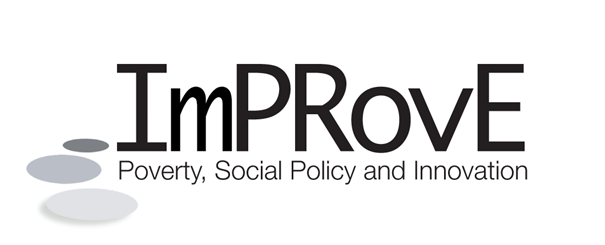While ImPRovE will analyse the position of a number of vulnerable groups in European societies (WP 1, WP 5 and WP 6), this WP focuses specifically on Roma. The reason for this particular attention is twofold:
- First, living conditions are appreciably worse for Roma than for the majority population in their home countries.
- Furthermore, the European Union and in particular the European Commission have developed a number of policy processes that aim to promote integration of Roma (e.g. EU Decade of Roma Inclusion 2005-2015, EU Framework for National Roma Integration Strategies, European Platform for Roma inclusion, EU Roma network and the bi-annual Roma summits).
A number of mutually reinforcing factors contribute to the disadvantages faced by Roma. School segregation and discrimination in all major domains of life lead to a lack of education and jobs, which in turn to lead poverty, poor health and high mortality rates. The effect of a number of targeted policy measures and programmes in recent years appears to have been minimal.
The main aim of this work package is to first map the situation of Roma based on empirical data and second to provide an overview of comprehensive programmes on Roma social inclusion. The everyday experience of multiple disadvantages of Roma cannot easily be examined in systematic ways by means of statistical data. There are few country-specific (let alone cross-country comparable) data sources available which can be used for this purpose. Still, among the various available sources, two recent cross-country data collections are essential; both the FRA Roma pilot survey and the World Bank/ UNDP/EC Roma regional survey were carried out in 2011 and intended for publication in 2012. Besides these the United Nations Development Programme (UNDP) provides the most appropriate database. In 2004, UNDP compiled the largest set of data ever gathered on Roma entitled Vulnerable Groups in Central and South Eastern Europe.
The work package will build primarily on these datasets to develop a better understanding of the multiple disadvantages faced by Roma, extending the scope of the analysis over the whole European Union. Moreover, the work package will complement this analysis by collecting information on policy measures as we are studying comprehensive inclusion programmes targeting the Roma and vulnerable population in six member states where Roma are living in large numbers.
A final report will synthesise these findings and draw out lessons for socially innovative policies. Our work will reflect on the ongoing work related to the thematic work package within the NEUJOBS FP7 project. During the implementation phase, mutual information of partners as well as joint dissemination actions will be initiated.

